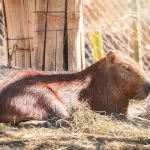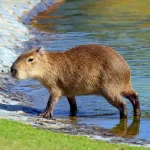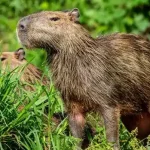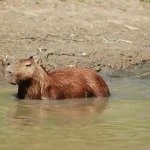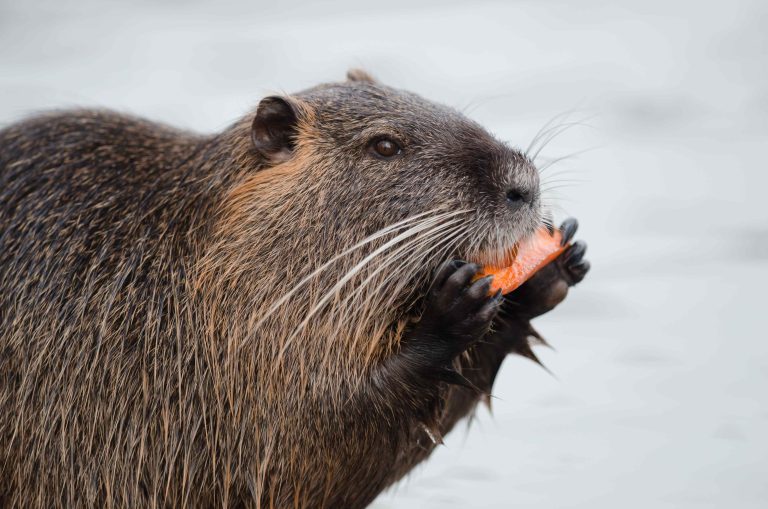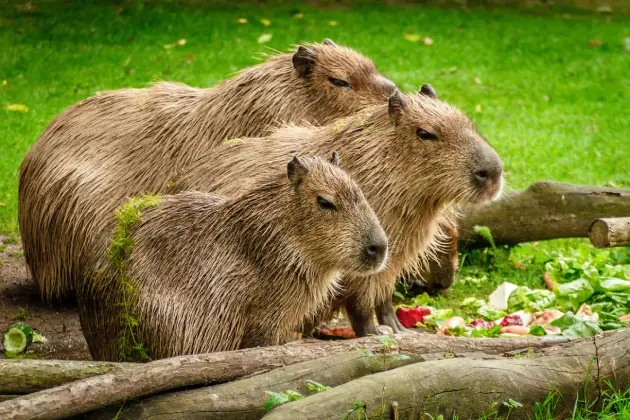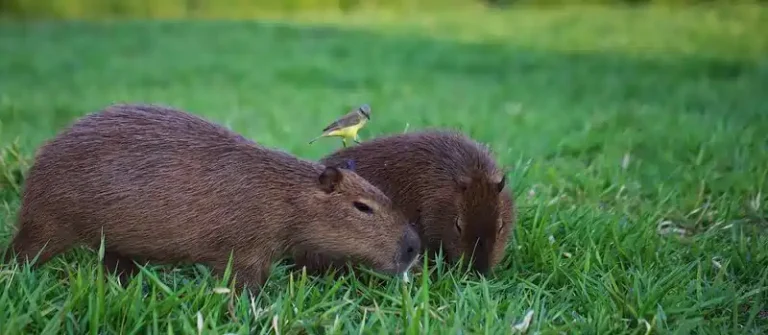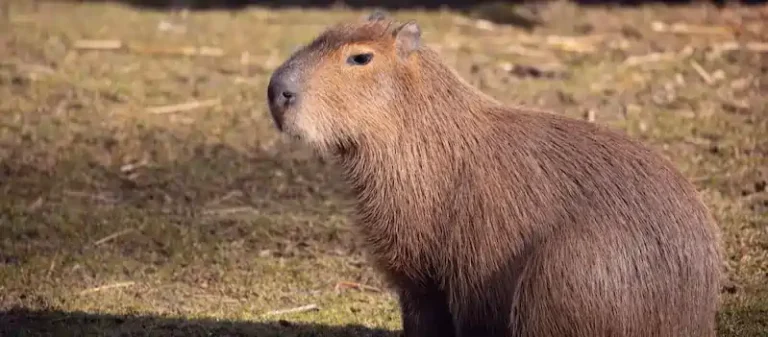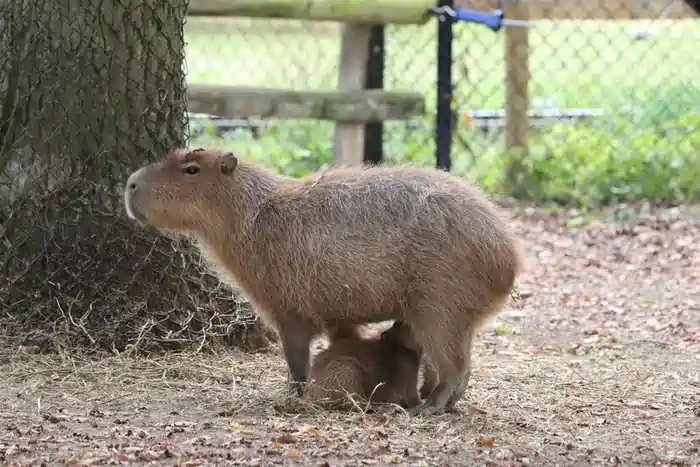
Capybaras are unique and social animals that have gained popularity as exotic pets. Known for their gentle nature and love for water, they make fascinating companions. If you’re considering owning a capybara in Wisconsin, it’s important to know whether it’s legal to do so in the state. In this article, we’ll explore whether you can own a capybara in Wisconsin, the care requirements for these animals, and alternatives if you’re not able to own one.
What is a Capybara?
Before diving into the legal aspects, let’s first understand what a capybara is. Native to South America, capybaras are the largest rodents in the world. These animals can grow up to four feet in length and weigh between 100 and 150 pounds. They live in groups near rivers, lakes, and wetlands, which is why they love having access to water. Capybaras are herbivores, and they primarily eat grasses, vegetables, and fruits.
Capybaras are also social creatures. They form strong bonds with other capybaras and can get lonely if they are kept alone. As a pet, they require plenty of space to roam and swim, and they need regular interaction to stay happy and healthy.
Can You Own a Capybara in Wisconsin?
When it comes to owning a capybara in Wisconsin, the short answer is no, you cannot own a capybara as a pet in the state. Wisconsin has strict regulations about owning exotic animals, and capybaras fall under that category. According to state law, capybaras are considered wild animals, and owning them is prohibited without special permits. However, obtaining such permits for capybaras is generally not possible.
Why Are Capybaras Banned as Pets in Wisconsin?
There are several reasons why Wisconsin has chosen to ban the ownership of capybaras. One of the primary reasons is that capybaras are not native to the state, and introducing them could disrupt local ecosystems. Non-native species can sometimes cause harm by competing with native animals for food and resources or by carrying diseases that could affect other animals and humans.
Another reason capybaras are banned is because they require specific care that can be challenging to provide in a typical household. They need a lot of space to roam and access to water for swimming. Without these basic needs, a capybara can become stressed and unhealthy. Their social nature also means they require constant interaction with other capybaras or humans to avoid loneliness and behavioral issues.
What Are the Legal Alternatives to Owning a Capybara in Wisconsin?
While owning a capybara in Wisconsin is not allowed, there are many other pets that can make great companions and are legal to own in the state. If you’re looking for an exotic pet, here are some alternatives you might consider:
Guinea Pigs
Guinea pigs are small rodents that are easy to care for and are legal to own in Wisconsin. They are social animals that enjoy the company of other guinea pigs. Like capybaras, guinea pigs are herbivores and require a similar diet of hay, vegetables, and fruits. While they don’t need as much space as capybaras, guinea pigs still require a large cage where they can move around and explore. If you love the idea of having a rodent as a pet but cannot own a capybara, guinea pigs are a great alternative.
Rabbits
Rabbits are another legal alternative to capybaras in Wisconsin. These social animals are intelligent and can be trained to use a litter box. Rabbits require a good amount of space to roam and should be given access to both a safe indoor area and an outdoor space if possible. They also need a proper diet that includes hay, vegetables, and fresh water. Rabbits are social animals and can form strong bonds with their owners, making them wonderful pets for families.
Hedgehogs
If you’re looking for a small and low-maintenance exotic pet, hedgehogs are a great option. They are legal to own in Wisconsin and do not require as much space or attention as capybaras. Hedgehogs are nocturnal animals, so they are most active at night. They are also solitary creatures, meaning they don’t need the company of other hedgehogs to thrive. A simple cage with bedding, a food dish, and water bottle is enough to keep a hedgehog happy.
Fish and Small Amphibians
If you’re interested in water-loving animals like capybaras but aren’t able to own one, you could consider fish or small amphibians like frogs. These animals can be kept in aquariums or ponds and can be just as fascinating to care for. While they don’t provide the same level of companionship as a capybara, fish and amphibians can still be rewarding to observe and maintain.
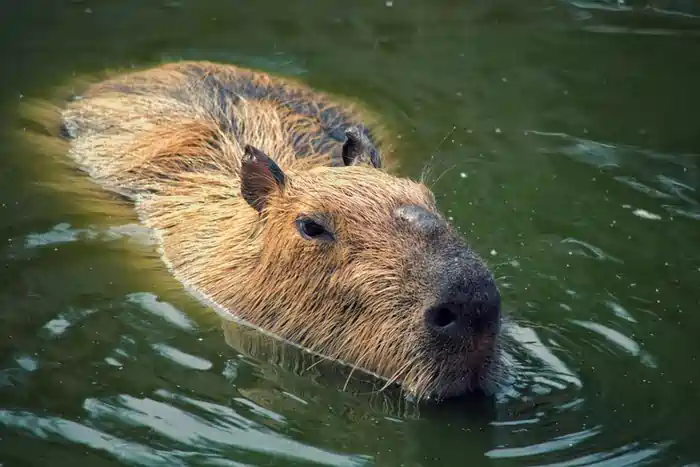
The Care Requirements of a Capybara
Even though capybaras are not allowed as pets in Wisconsin, it’s still useful to know what their care requirements are if you’re thinking about owning one in another state or simply want to learn more about these fascinating creatures. Here are some of the most important care needs of a capybara:
Space and Environment
Capybaras are large animals and need plenty of space to roam and explore. Ideally, they should be kept in a large outdoor enclosure where they can move freely. The enclosure should have a pool or pond for them to swim in, as water is essential to their well-being. Without access to water, capybaras can become stressed and develop health problems. The fence surrounding the enclosure should be high enough to prevent the capybara from escaping.
Social Interaction
Capybaras are social animals and need constant interaction with others. They are happiest when kept in pairs or groups, but if kept alone, they will need a lot of human interaction to prevent loneliness. If you are unable to keep multiple capybaras, you will need to spend a significant amount of time with your pet to keep them emotionally healthy.
Diet and Nutrition
Capybaras are herbivores, and their diet consists mainly of grasses, hay, and vegetables. They also enjoy eating fruits as treats but should not have too much sugar. Fresh water is essential, and capybaras should have access to it at all times. Their diet should be carefully balanced to ensure they are getting the proper nutrients they need to stay healthy.
Veterinary Care
Like all pets, capybaras require regular veterinary care. They can suffer from a variety of health issues, such as dental problems, skin infections, and digestive issues. Regular check-ups with a vet experienced in exotic animals are important to keep your capybara healthy and happy.
Conclusion
Owning a capybara in Wisconsin is not allowed, as the state has strict regulations about exotic pets. However, if you’re drawn to these fascinating creatures, there are legal alternatives in Wisconsin, such as guinea pigs, rabbits, and hedgehogs, which can make great pets. If you’re ever in a state where capybaras are allowed, be sure to research their care requirements before bringing one into your home. Capybara Pet Info is dedicated to providing helpful information about capybaras and other exotic pets, so you can make an informed decision.
Frequently Asked Questions (FAQs)
1. Can You Own a Capybara in Wisconsin?
No, capybaras are considered exotic animals in Wisconsin, and it is illegal to own them as pets without special permits, which are not typically granted.
2. What Other Pets Are Legal to Own in Wisconsin?
There are many legal pets in Wisconsin, including guinea pigs, rabbits, and hedgehogs. These animals are easier to care for and are great alternatives to capybaras.
3. Do Capybaras Need a Lot of Space?
Yes, capybaras are large animals that require a significant amount of space to roam. They need an outdoor enclosure with access to water for swimming.
4. Can Capybaras Live Alone?
Capybaras are social animals and should ideally be kept in pairs or groups. If they are kept alone, they may become lonely and stressed.
5. What Do Capybaras Eat?
Capybaras are herbivores and eat grass, hay, vegetables, and occasional fruits. They also need constant access to fresh water.


